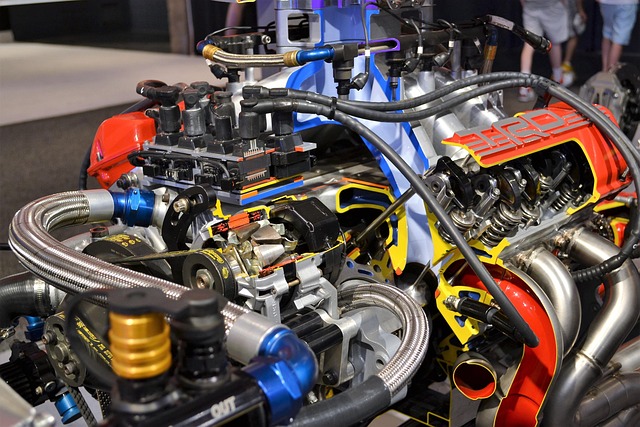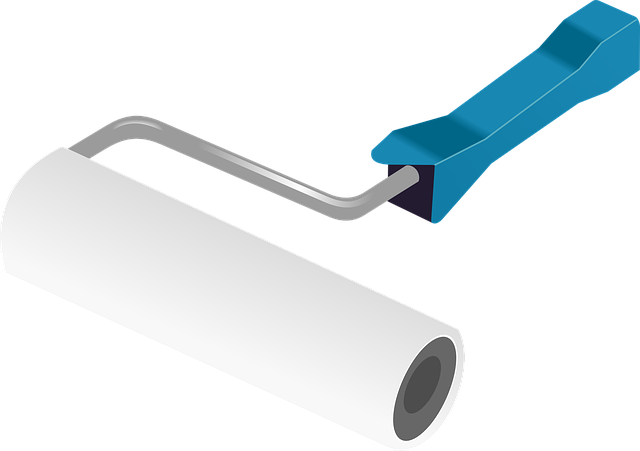The Mercedes Rollover Protection System (ROPS) relies on a robust network of sensors, actuators, and the Controller Area Network (CAN) bus for optimal passenger safety during rollovers. Preserving the integrity of CAN bus signals is paramount, as disruptions can hinder ROPS responsiveness in accidents. Reputable auto collision centers perform regular checks and repairs to maintain this sophisticated safety feature's functionality, ensuring its continued effectiveness through meticulous attention to detail and adherence to manufacturer guidelines.
Mercedes’ Rollover Protection System (ROPS), a pioneering safety feature, relies on accurate CAN bus signals for its critical functions. This intricate system uses a network of sensors and actuators to enhance driver and passenger safety in the event of a rollover. The reliability of these communication signals is paramount as any deviation could compromise the effectiveness of ROPS. Understanding the interplay between the CAN bus and Mercedes ROPS is essential for maintaining optimal vehicle safety.
- Understanding Mercedes Rollover Protection System (ROPS)
- The Role of CAN Bus Signals in ROPS Functionality
- Ensuring Signal Accuracy for Optimal Safety
Understanding Mercedes Rollover Protection System (ROPS)

The Mercedes Rollover Protection System (ROPS) is a sophisticated safety mechanism designed to safeguard occupants during rollovers. This system actively monitors vehicle stability and intervenes in critical situations, minimizing the risk of severe injuries. ROPS utilizes a network of sensors and actuators connected through the Controller Area Network (CAN) bus to detect impending rollovers and deploy protective measures, such as reinforced doors and roof structures, to enhance passenger security.
Maintaining the accuracy of CAN bus signals is paramount for the efficient operation of the Mercedes ROPS. Any signal disruption or error can compromise the system’s responsiveness, potentially leading to inadequate protection during an accident. Therefore, regular checks and repairs at a reputable auto collision center are essential to ensure the integrity of this critical safety feature, especially when considering the intricate nature of modern automotive body shops that handle such sophisticated systems.
The Role of CAN Bus Signals in ROPS Functionality

The Mercedes rollover protection system (ROPS) relies heavily on accurate CAN Bus signals for its functionality and reliability. CAN (Controller Area Network) Bus is a critical communication protocol in modern vehicles, enabling various systems to exchange data efficiently and in real-time. In the context of ROPS, CAN Bus signals play a pivotal role by facilitating the quick transmission of vital safety information between different components of the vehicle’s frame and crumple zones. This seamless data exchange ensures that the rollover protection system can react instantaneously when a rollover event is detected, thereby enhancing passenger safety during such incidents.
Accurate CAN Bus signaling is essential to prevent any delay or malfunction in the ROPS mechanism. A single error or inconsistency in these signals could lead to incorrect deployment or delayed response of the rollover protection features. This is where advanced diagnostic tools and regular maintenance come into play, ensuring that the CAN Bus network remains intact and free from errors, just like how paintless dent repair techniques preserve the original auto body painting without damaging the vehicle’s aesthetics, so too does proper CAN Bus management protect the integrity of Mercedes’ innovative safety systems, such as ROPS.
Ensuring Signal Accuracy for Optimal Safety

Maintaining precise signal accuracy is paramount for the effective operation of the Mercedes rollover protection system. This advanced safety feature relies on a complex network of sensors and actuators, all communicating via the Controller Area Network (CAN) bus. Even minor signal distortions can lead to false readings or delayed responses, compromising the system’s overall performance and potentially endangering occupants during an accident.
Auto body shops specializing in Mercedes repairs understand this critical aspect, ensuring meticulous attention to detail when handling related services like auto body repair and car paint work. Regular calibration of sensors, proper wiring maintenance, and adherence to manufacturer guidelines are essential practices that contribute to preserving the integrity of CAN bus signals, ultimately enhancing the effectiveness of the Mercedes rollover protection system for optimal safety.
The Mercedes Rollover Protection System (ROPS) relies heavily on accurate CAN bus signals for its effectiveness. Ensuring these signals remain precise and reliable is paramount for optimal vehicle safety, as any deviation can compromise the system’s ability to respond swiftly during critical situations. Thus, maintaining high signal accuracy is essential for the seamless operation of the ROPS, underscoring the importance of regular checks and updates in the automotive industry.














